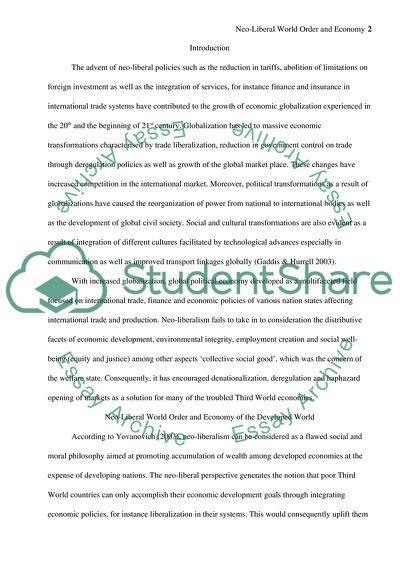Cite this document
(Neo-Liberal World Order and Economy of the Developed World Essay, n.d.)
Neo-Liberal World Order and Economy of the Developed World Essay. https://studentshare.org/politics/1857000-neo-liberal-world-order-and-economy-of-the-developed-world
Neo-Liberal World Order and Economy of the Developed World Essay. https://studentshare.org/politics/1857000-neo-liberal-world-order-and-economy-of-the-developed-world
(Neo-Liberal World Order and Economy of the Developed World Essay)
Neo-Liberal World Order and Economy of the Developed World Essay. https://studentshare.org/politics/1857000-neo-liberal-world-order-and-economy-of-the-developed-world.
Neo-Liberal World Order and Economy of the Developed World Essay. https://studentshare.org/politics/1857000-neo-liberal-world-order-and-economy-of-the-developed-world.
“Neo-Liberal World Order and Economy of the Developed World Essay”. https://studentshare.org/politics/1857000-neo-liberal-world-order-and-economy-of-the-developed-world.


